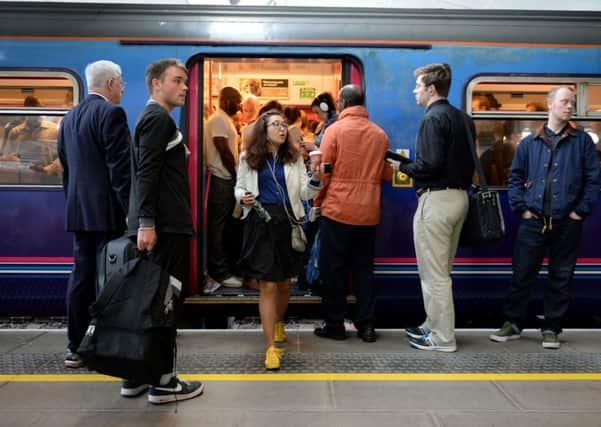Train fare regulation ‘to blame for overcrowding’


Scrapping the annual inflation-linked fare-rise system would allow train companies to offer far more flexibility in pricing to make better use of spare capacity on trains, said the Institute of Economic Affairs (IEA).
Overcrowding in Yorkshire has frequently been rated the worst outside of the capital. Earlier this year Sheffield Station was named as having the most congested outside of London.
Advertisement
Hide AdAdvertisement
Hide AdTrain companies could offer passengers a better deal if they choose to travel at less popular times, said the IEA.
It added that the “harmful effects” of fare regulation had been made worse by the pegging of rail fares to the rate of RPI inflation as the taxpayer is left to make up the difference if rail industry costs rise at a faster rate than inflation.
It said the cost to the taxpayer of propping up the rail network was around £6bn a year, accounting for 40 per cent of all spending by the rail industry.
IEA transport head Richard Wellings said: “Rail passengers and taxpayers continue to be left out of pocket thanks to the continual intervention of politicians in the sector. Far from protecting rail users, price controls have distorted demand, leading to intense overcrowding on certain routes whilst other services are left underused. Rather than proposing expensive infrastructure projects, which are extremely costly to the taxpayer, politicians should simply give train companies the freedom to set prices so that demand for rail travel can be spread more evenly.”